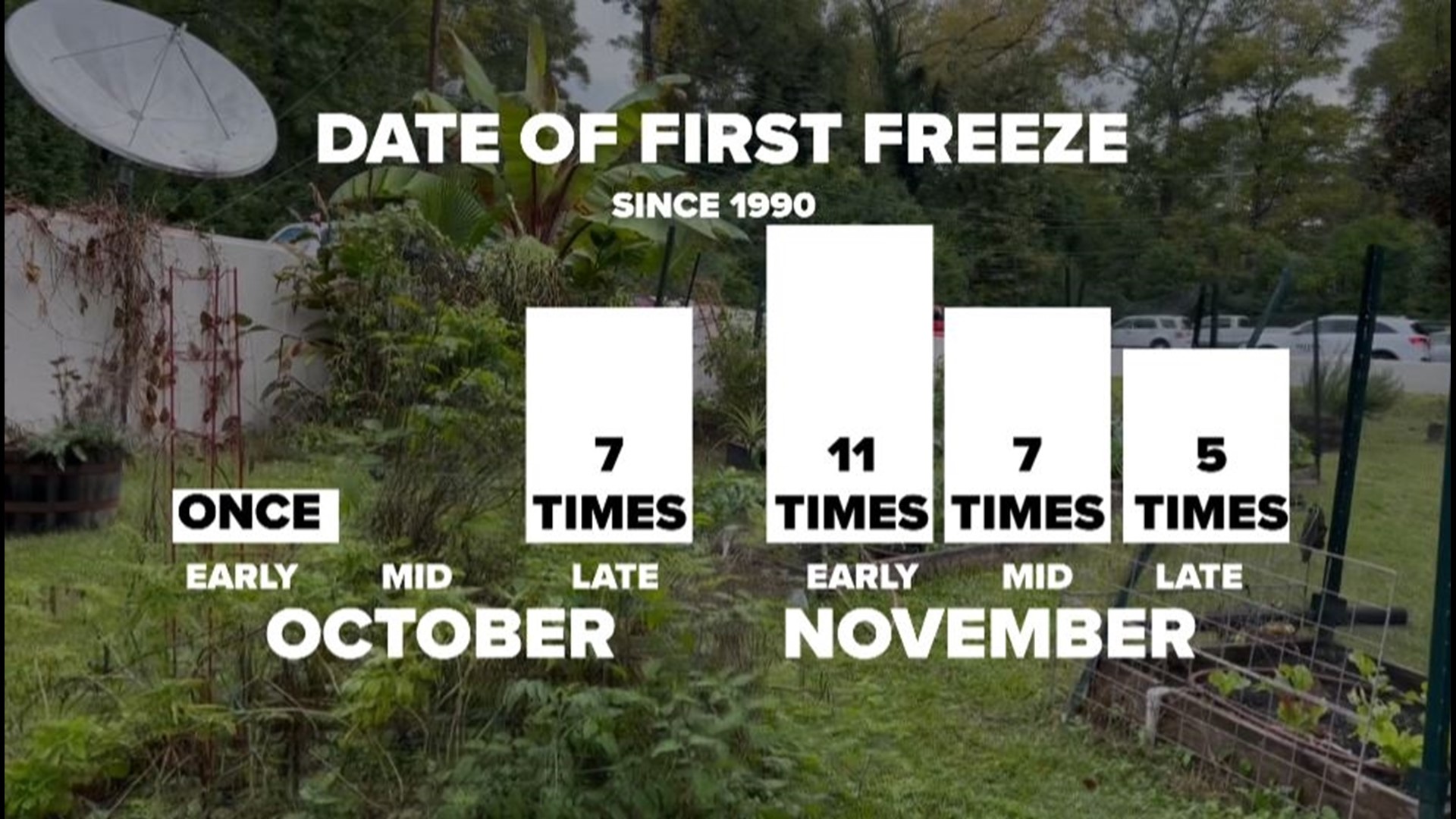COLUMBIA, S.C. — November is a month of change in South Carolina. 90-degree temperatures have never been reported in Columbia, SC after November 2, and the average afternoon temperature drops from a warm 77F in October to a cool 66F, the fastest average temperature drop of the year.
October 2021 was 3.3F warmer than the climatological average for Columbia, SC. The Midlands remains frost free on November 1st, but that could change soon. In the meantime, summer plants like tomatoes, peppers, and eggplant are flushing with a final crop of fruit in our garden outside WLTX. These plants are require temperatures above freezing to survive, but our hot and humid summers can stress them out and reduce growth and fruit production. Early and mid-Autumn are sometimes considered “second summer” to gardeners in the South because these summer plants can make a rebound in the more comfortable temperatures.
When frost hits, all the warm weather crops will die, but there’s a nice variety of cool season crops that can survive temperatures below freezing, and several that can even survive temperatures below 20F. These cool season crops will slow down in growth during the wintertime, but unlike in summer, weeds, bugs, and watering aren't an issue. For those looking for a low maintenance garden, or something green during gray winter days, winter gardening is something to consider.
RELATED: Late February Gardening in the South
Late August and early September is the best time to start cool weather plants. In our garden outside WLTX, collards, cabbage, broccoli, and cauliflower were started from seedling sizes in early September. They should be ready to pick in time for Christmas, and could be ready as early as Thanksgiving.
Lettuce, and broccoli rabe are fast to grow from seeds so these were started around the same time as the seedlings in early September. Ours were started in small pots and were big enough to go in the raised beds in October.
Meanwhile, the parsley, cardoon, and kale from Fall 2020 are returning this year after dying back during the summer heat. It turns out these plants can be treated as perennials in South Carolina. They grow during the fall and spring, stay green during the coolest weeks of the winter, and die back to the roots after going to seed in the summertime.
RELATED: How to Keep Deer out of the Garden
All of these winter greens in our cool season garden have proven to be cold tolerant down to temperatures in the mid 20s without a frost covering. Lettuce, cauliflower, and broccoli will begin to wilt when temperatures drop below 20F unless they receive supplemental protection from frost cloths, but other plants like parsley, cabbage, kale, collards, and cilantro can survive temperatures in the teens.

